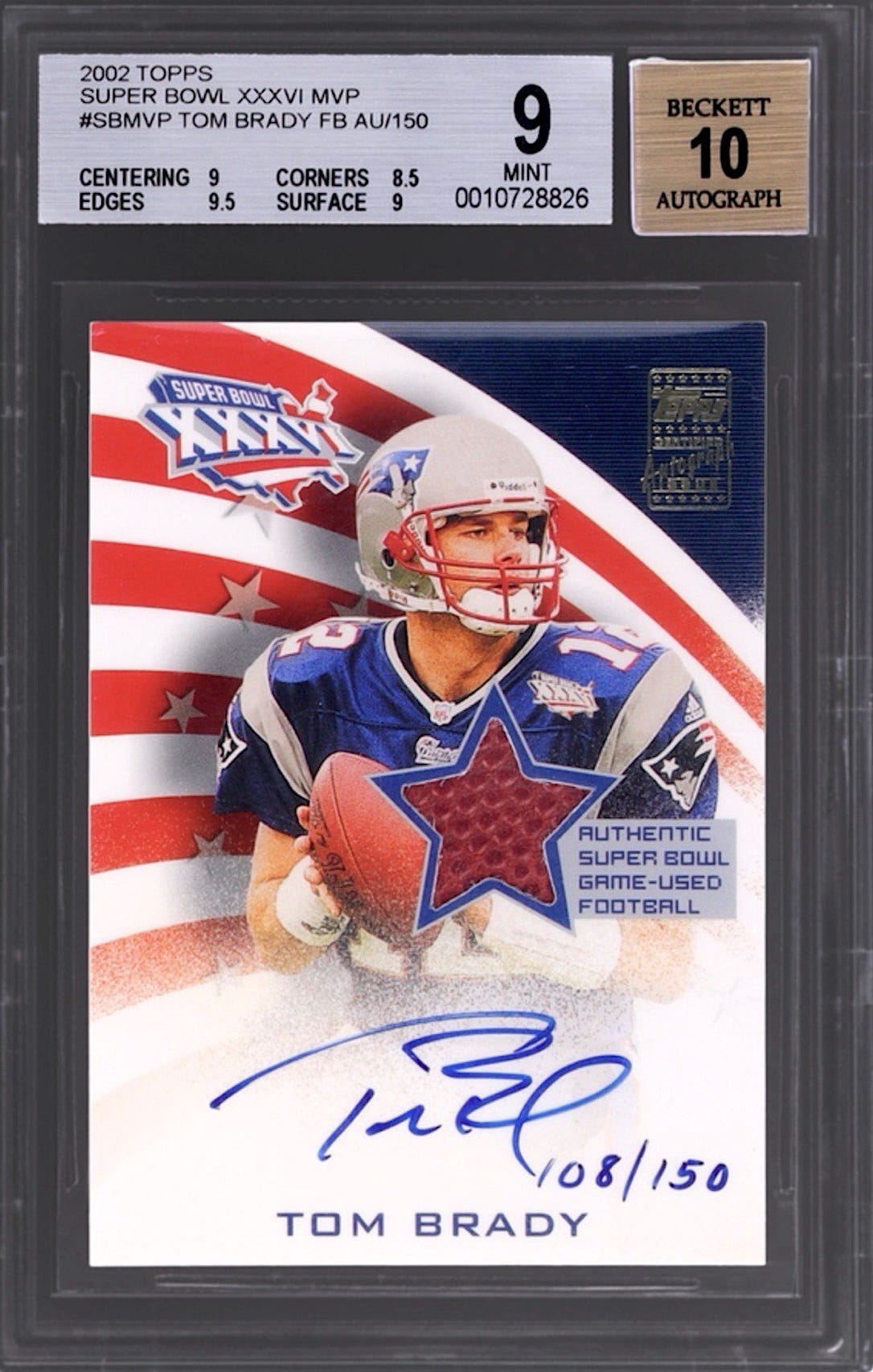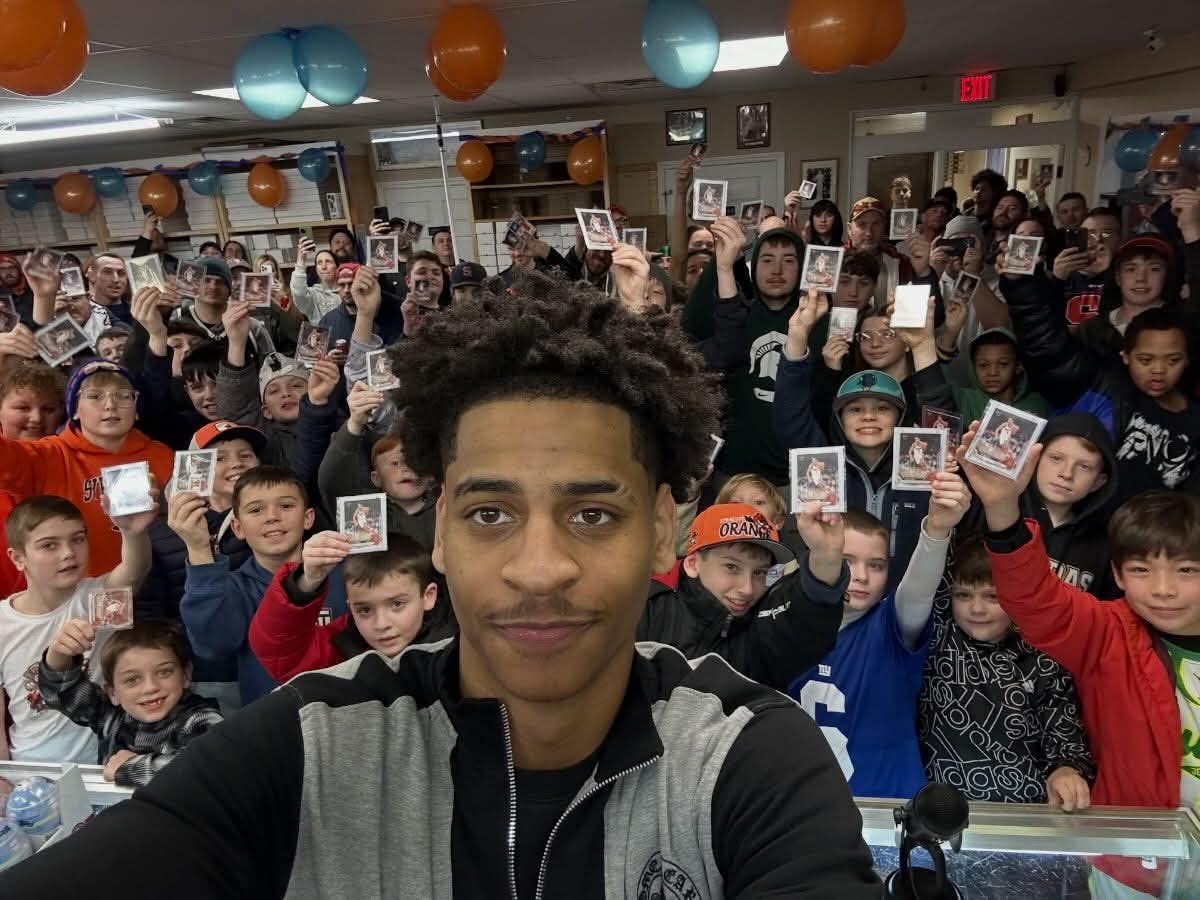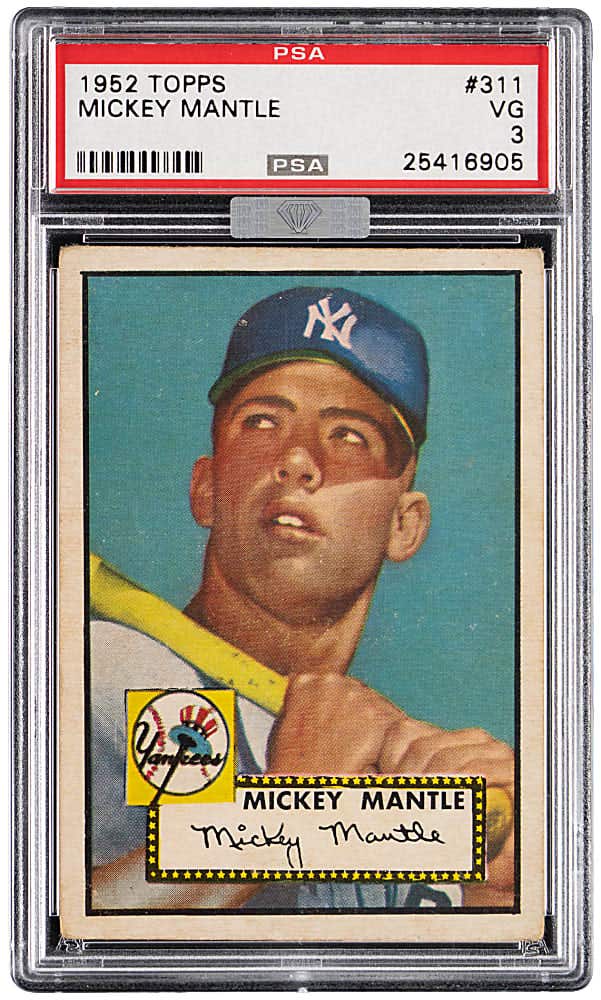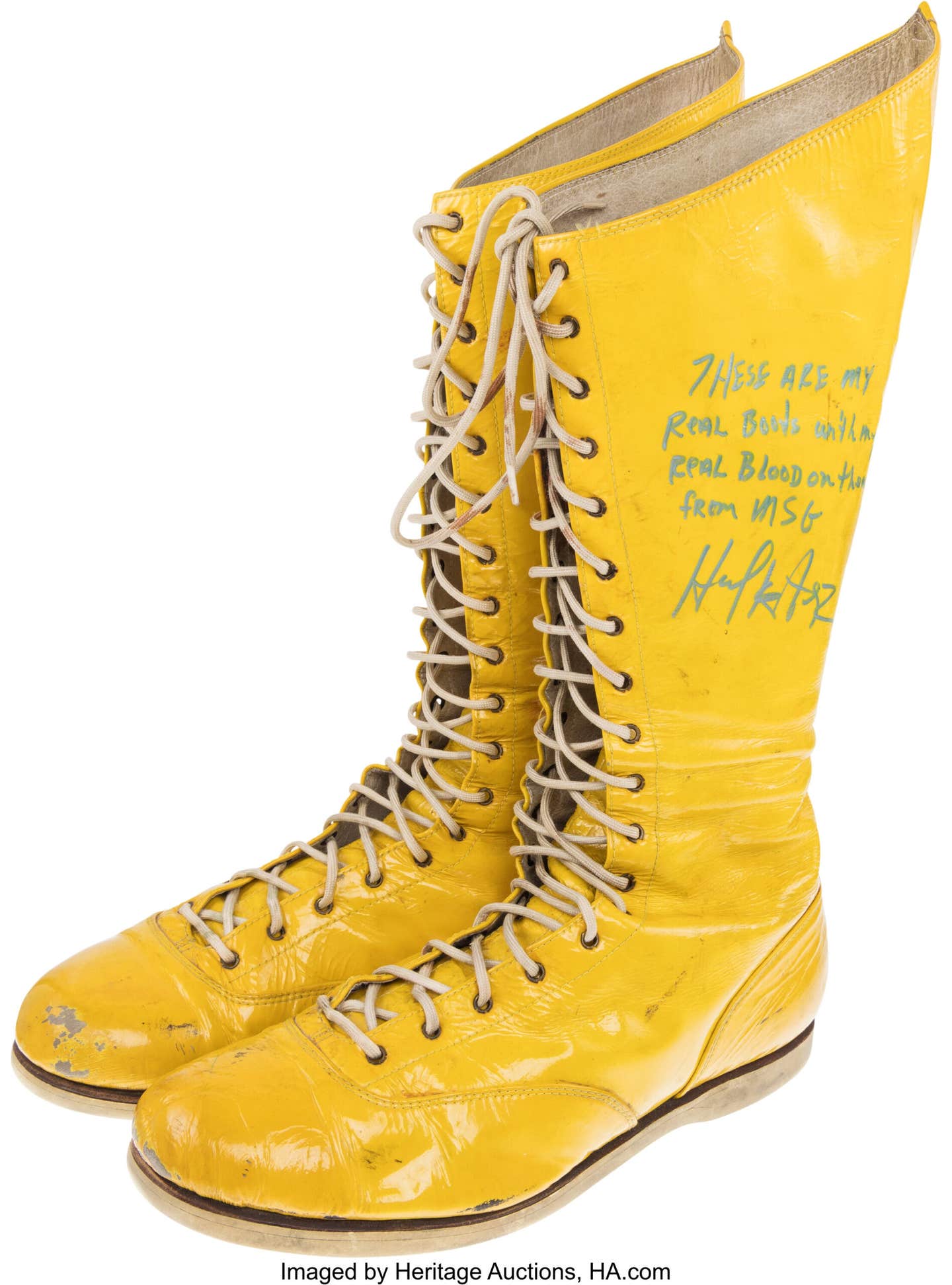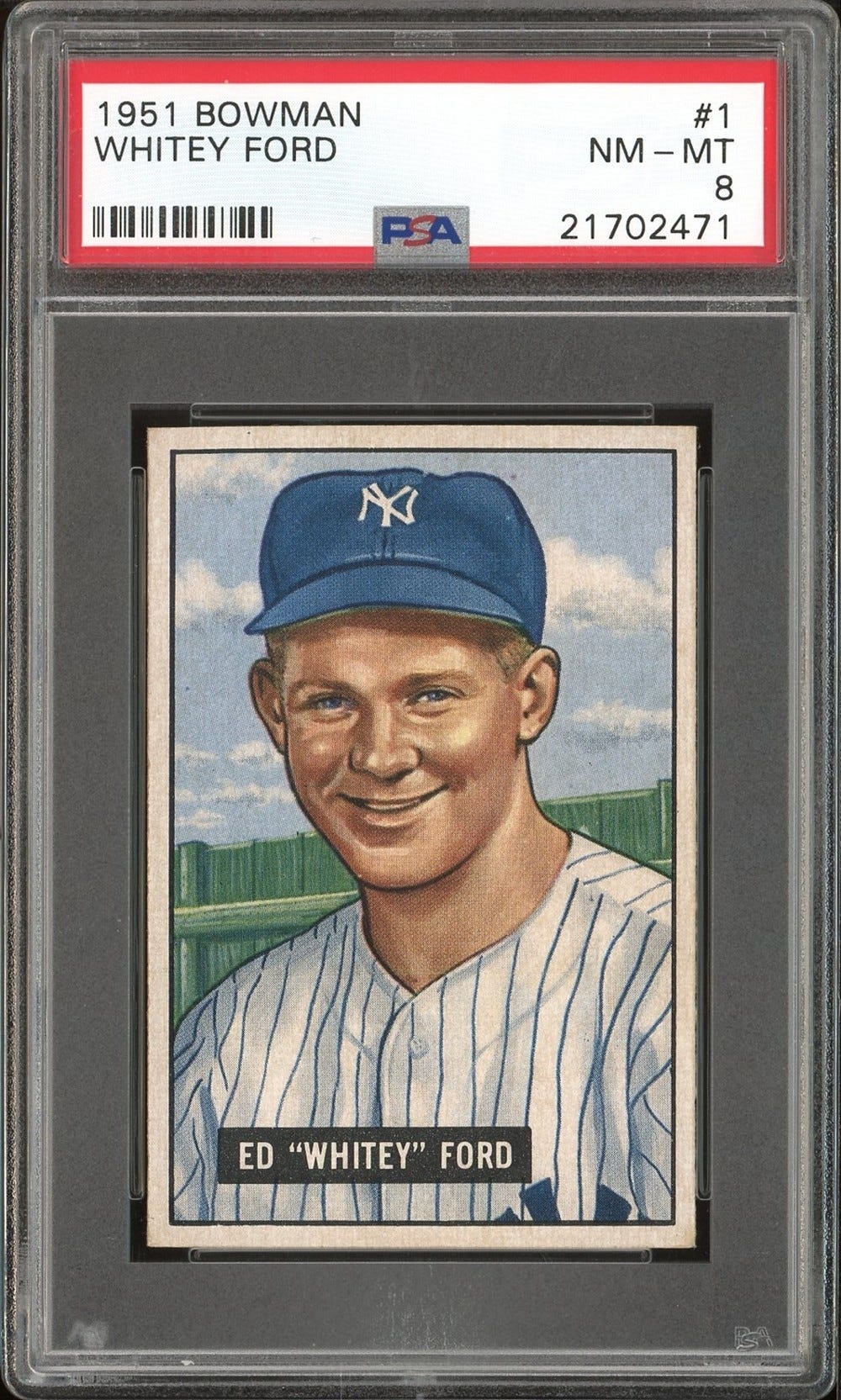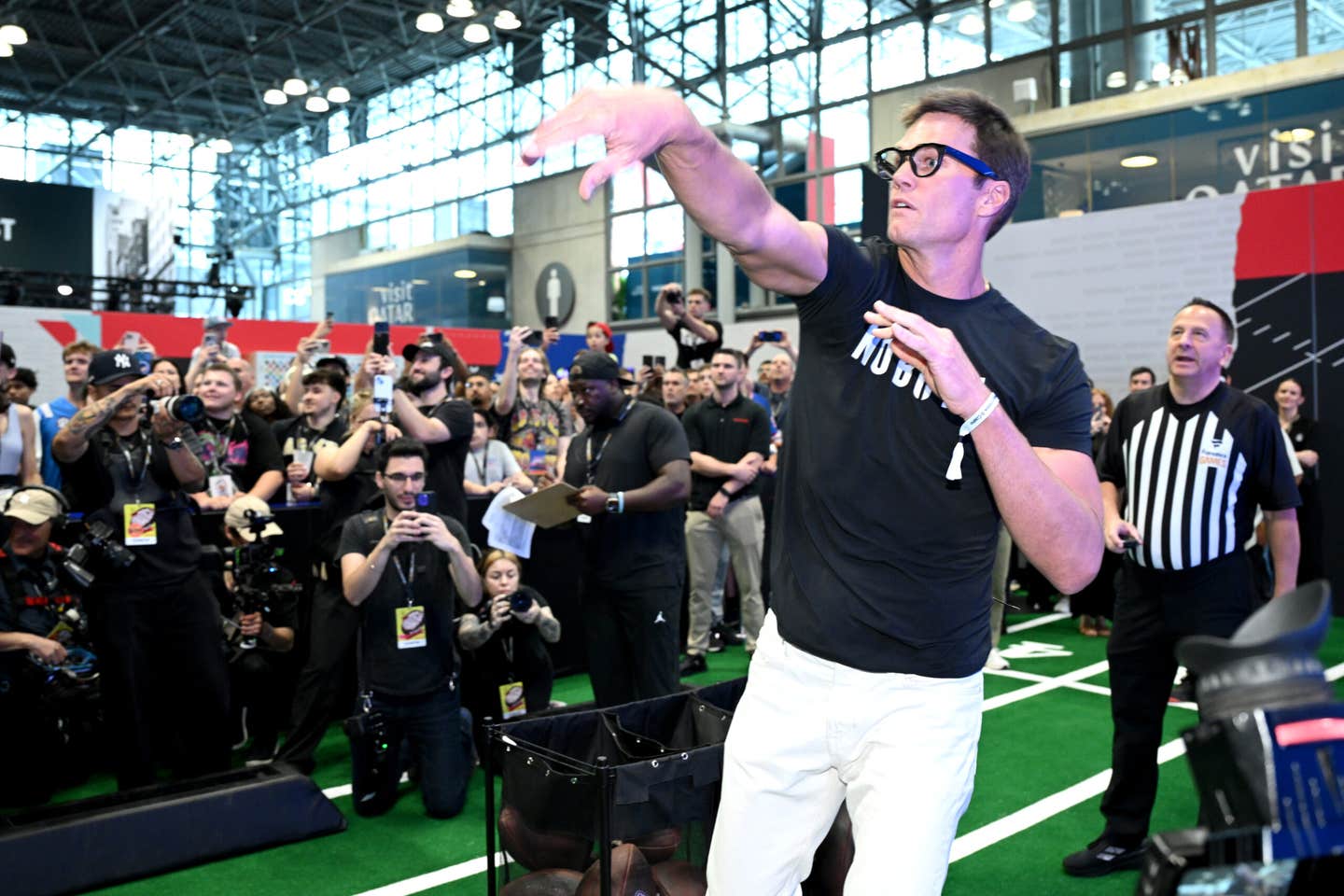News
Flashback Interview: Flying With ‘The Jet’
Joe “The Jet” Perry was one of four members of the 1950s San Francisco 49ers’ backfield to make the Pro Football Hall of Fame. Perry still stands as the 49ers all-time rushing leader in yards (7,344) and rushing touchdowns (50, tied with Roger Craig).
My most vivid memories of Perry were games I saw him play and set records for the 49ers at Kezar Stadium. His abilities as a 49ers fullback were unforgettable.
His passing (on April 25, 2011, at age 84) is a reminder that many of our heroes are in fact, long past their playing days, yet the impression of greatness they originally left upon us remains.
In 2008, I had the chance to sit down with Perry before a 49ers game and express my gratitude to him for all the great memories he bestowed on me. In return, he answered questions from his career that spanned 16 years with the 49ers and Baltimore Colts.
Sports Collectors Digest (SCD): Did you want to play football for a living?
Joe Perry (JP): In high school and college I had majored in math and got As in calculus and advanced trigonometry, and I planned to become an electrical engineer after I graduated.
SCD: Where did you play football in high school?
JP: I played at David Starr Jordon in Los Angeles.
SCD: I read where your mother was against you playing football.
JP: She refused to sign the release which would absolve the school of any responsibility in case of injury. So without her knowledge, I signed it for her. Ironically, the first day of practice I broke my ankle. Later, I was confronted by my mother with the forgery, but I later convinced her to let me play after the injury healed. I started for the varsity football team as a 13 year old.
SCD: Where did you play college ball?
JP: My heart was set on attending UCLA so that I could follow in the footsteps of my idol Kenny Washington. I had the academic and athletic accomplishments to qualify, but I was snubbed by the university. It seemed they weren’t ready for black football players. So I enrolled at Compton Junior College.
SCD: Did you set any records at Compton?
JP: I went on to set a school scoring record with 114 points in 1944. But after one season at Compton, I enlisted in the Navy.
SCD: Did you play any other sports in college?
JP: I ran track, high jumped and long jumped. I also was a good baseball player, and an even better softball player. On Saturday nights, I loved to bowl.
SCD: How fast were you?
JP: I won the 100-yard dash in 9.7 seconds at Compton. And I finished second to Mel Patton, the former Olympian, in 9.4.
SCD: Tell me about the Navy.
JP: I had just turned 17 when I joined the Navy. I served on an LST in the Pacific until the war ended. I was a coxswain. I finished up my military obligation at the Alameda Naval Air Station decommissioning ships and pulling up anchor chains for the Navy. When I wasn’t playing football for the Navy, I was a pitcher, and we won the All-Navy softball tournament.
SCD: Didn’t you receive any scholarships?
JP: After three years in the Navy, I received scholarship offers from Washington, Oregon, USC, Nevada and Columbia of the Ivy League. At the time I was married with a child, so it came down to using my G.I Bill from the Navy or pro football.
SCD: So you signed with the 49ers?
JP: While playing football for the NAS Hellcats, my football exploits attracted both the Rams from the NFL and the 49ers from the All American Football Conference. Coach Buck Shaw and 49ers quarterback Frankie Albert scouted me in a game against a service team. That day I scored three touchdowns. Though the Rams offered me $5,000 more than the 49ers, I signed a contract with the 49ers the following day. I still had 10 months in the Navy before I could join the team.
SCD: Why did you pick the 49ers?
JP: I chose the 49ers because of my immediate bond with owner Tony Morabito. He was like a second father to me.
SCD: Do you remember your first play as a 49er?
JP: Yes. I ran 58 yards for a touchdown against the Buffalo Bills. That was in 1948.
SCD: Weren’t you the “King” before McElhenny?
JP: Not many people know this. I was the “King” before Mac came. Frankie Albert named both of us the “King.” Then McElhenny came on the scene in 1952, and he took over the crown as “The King.” I was renamed “The Little King.
SCD: So how did you become “The Jet?”
JP: As time progressed, my quickness and speed earned me the new nickname the “Jet,” again from Albert. That stayed with me until to the end of my career.
SCD: What was your playing weight throughout your career?
JP: Between 195 and 207 pounds.
SCD: How was your running style different from McElhenny’s?
JP: I was ultraconservative and never took gambles. I moved straight ahead and seldom veered from my course and fought for every inch. Hugh was a guy who would sacrifice 10 yards to look for daylight.
SCD: Who was the faster, you or Hugh?
JP: No one ever questioned my speed, but at 50 yards, I would say I was slightly faster. At 100 yards, I would pick McElhenny.
SCD: Some say you had the quickest start.
JP: Buck Shaw, my coach, put a stopwatch on me and found that I could start three yards behind the line of scrimmage, take a hand-off from quarterback Albert and get through the hole in six-tenths of a second. He once said I ran like a bowling ball fired from a howitzer going straight down the middle sending pins flying in every direction.
SCD: Who had the most carries?
JP: I guess I did. It seemed I either carried the ball or plunged into the line on a fake most every play. I also plunged on a fake on at least 50 percent of 49ers pass plays. I ran so fast and faked well that most linebackers were told to tackle me every time I popped through the line.
SCD: What was the “Perry Trap” play?
JP: It was a maneuver which our coach developed for me. The only difference between the “Perry Trap” and an ordinary one was that our big tackle, Bob St. Clair, crossed over from the other side and usually flattened a linebacker as I plunged through the hole.
SCD: What was it like being the first black player for the 49ers?
JP: There definitely was some racial prejudice shown toward me on the field. I always was patient with those who spoke badly about me, but I would not tolerate any physical punishment because of my race. I would retaliate immediately if I believed my physical well-being was being compromised. It made me very much respected among my teammates. We were like a family, and race relations were quite good.
SCD: Did you suffer any major injuries in your career?
JP: I sure did. As my injuries mounted in college, I was referred to “the man-most-carried-off-the field” in Compton Junior College history. In my first seven seasons as a 49er (1948-55), I broke three ribs, lost nine teeth, suffered two shoulder separations, sprained my ankle nine times, sprained my knee three times, tore ligaments in my legs twice – and I had 27 stitches taken in my face.
SCD: What was the worst injury?
JP: One hot day against the Rams, I think in 1954, I tossed aside the helmet that had a fitted mask for me, for one without a mask. Three plays later, I got elbowed by the Ram’s Larry Brink who knocked out nine of my teeth, two from a bridge I had fitted, after a game against the Steelers. Still, I scored three touchdowns that day.
SCD: So how much did it cost the insurance company?
JP: Only $320. After all, extractions weren’t necessary (Perry said laughing).
SCD: Was that the last injury in your career?
JP: No. In the infamous playoff game of the 1957 season, a 31-27 loss to the Lions, our second-half collapse cost us the divisional championship. I fractured my zeugmatic bone in the third quarter. One side of my face was caved in, but I didn’t come out of the game. Despite the pleas of my teammates to seek medical attention, I played on.
SCD: What were your best seasons with the 49ers?
JP: I think the 1953 and 1954 seasons. I had consecutive 1,000-yard rushing seasons at a time when that specific statistic truly was a fantastic feat. Just to be the first NFL back to do it in back-to-back seasons was an accomplishment.
SCD: Did you play any other position besides fullback?
JP: At the start of the 1954 season, I filled in as place kicker for Gordie Soltau, who was injured. I kicked five points after touchdowns in the opener, a 41-7 win over the Redskins. And the following week, I added another PAT and a 14-yard field goal against the Rams, until Soltau returned in the second half in a 24-24 tie. I was never asked to kick again.
SCD: What do you remember most about the “Million Dollar Backfield?”
JP: If not for McElhenny’s season-ending injury in 1954, all three of us – Mac, John Henry and I – might have finished 1-2-3 in the NFL in rushing, not sure in what order. That would have been a league first – three backs from one team. As it turned out, Johnson ended up second to me in the final NFL rushing stats.
SCD: Did you guys really make a million dollars?
JP: That’s a joke (laughing). If you put all of our salaries together, it didn’t amount to that. It was our general manager Lou Spadia who said we played like we were worth a million dollars.
SCD: Was there a Joe Perry day?
JP: On Aug. 28, 1955, the 49ers honored me at Kezar before our game with Cleveland. Norm Standlee was the MC. I was the first black player in the NFL to be saluted in such a fashion. I felt quite honored. I got a TV set and furniture for my house. Fans thought I got a car because there was a Pontiac on the field. However, I worked for Boas Pontiac in the offseason, and they put the car out there.”
SCD: I heard you had a radio show.
JP: During the 1950s, I was given my own radio show, five days a week, 4-6 p.m., on station KLX in Oakland. I spun records and interviewed my 49ers teammates and celebrities like Dinah Washington.
SCD: Why did you leave the 49ers?
JP: I left the 49ers by my own choice in 1961 for the Baltimore Colts. I felt that I could no longer co-exist with head coach Red Hickey, who refused to play me in most of the games in 1960.
SCD: But you came back to the 49ers in 1963.
JP: After two seasons in Baltimore, the Colts cut me. Vic Morabito called me and asked me to come home and retire as a 49er. My loyalty to the Morabito family was too powerful a pull. So I returned for one last season.
SCD: Any regrets, Joe?
JP: I always believed that my two years (1948-49) in the All-American Football Conference, my statistics should have been included with my overall NFL accomplishments. The competition was just as good as the ones in the NFL. The Browns proved that by beating the Rams in the 1950 NFL Championship, after barely beating us in the AAFC title game 21-7 in 1949.
Author’s note
In addition to being a member of the Pro Football Hall of Fame in Canton, Perry was inducted into the Bay Area Sports Hall of Fame (1986), African American Ethnic Sports Hall of Fame (2001), Edward J. DeBartolo Sr. 49ers Hall of Fame (2009) and Tartar Athletics Hall of Fame (2011).
In 2007, the 49ers established the Perry/Yonamine Unity Award to celebrate the team’s 65-year history of exemplifying the power of teamwork to accomplish goals. The award is named after Perry and fellow former 49er Wally Yonamine – two individuals who demonstrated the power of unity to make a difference on the field and in the community. u
Martin Jacobs is a freelance writer and has written two books on the 49ers: “Before They Were Champions – the San Francisco 49ers 1958 Season” and “San Francisco 49ers – Images of Sports.” Jacobs can be reached via e-mail at MJacobs784@aol.com.



